
Hosted by the University of Plymouth

Hosted by the University of Plymouth
The Electron is essentially a budget version of the BBC Micro, branded under Acorn Computer's own name. Like the Model B, it has a 6502 CPU, 32K of RAM and uses the highly-regarded BBC BASIC , while the differences included far fewer external interfaces, and more limited graphics and sound (specifically, the lack of the BBC's 'teletext' mode and one sound channel rather than three).
Acorn, 1983
Donated/on loan from: Prof. Steven Furnell, Plymouth University
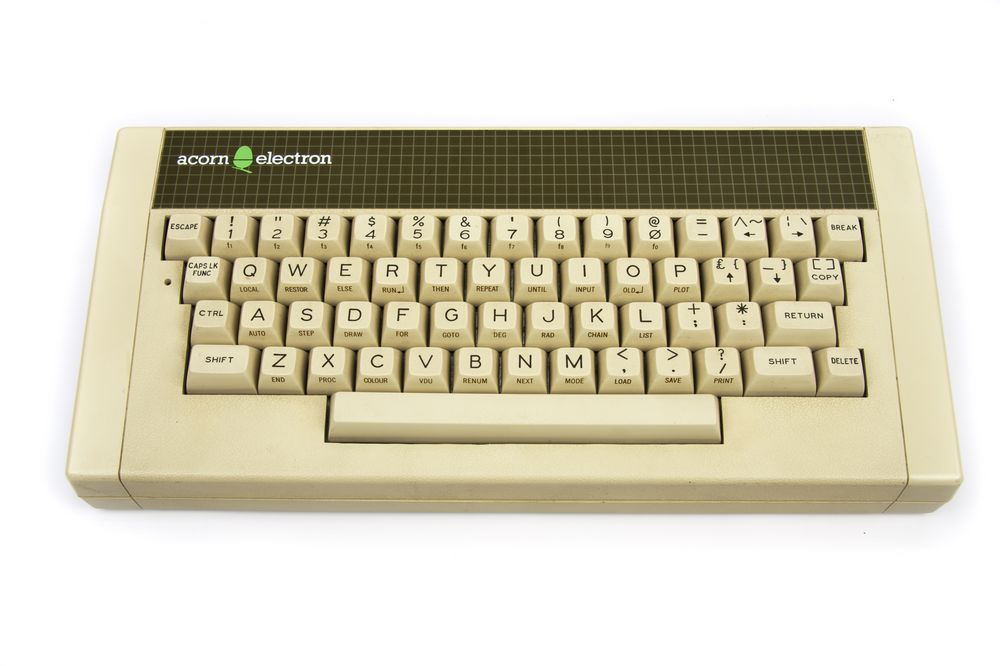
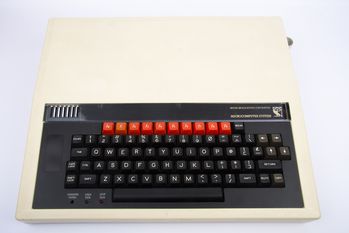
The Model B was an early member of the BBC Microcomputer System series, which were designed and built by Acorn Computers for the British Broadcasting Corporation's Computer Literacy Project. The Model B had 32K of RAM (as opposed to the 16K offered by its predecessor, the Model A), and was partic... (read more)Acorn, 1982
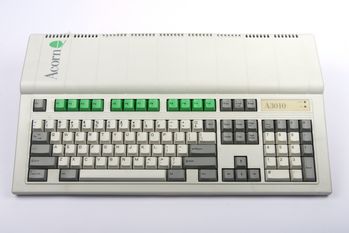
One of the final machines to be released in Acorns' Archimedes range, which had seen the company pioneer the use of RISC (Reduced Instruction Set Computing) CPU architecture. The CPU was an ARM 250 (which at the time stood for Acorn RISC Machine) running at 12 MHz; an ancestor of the StrongARM p... (read more)Acorn, 1992
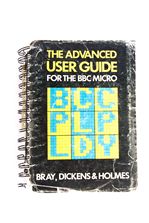
Advanced User Guide for the BBC Micro by Andrew Bray, Adrian Dickens, Mark Holmes. 510 pages. (read more)Acorn, 1983
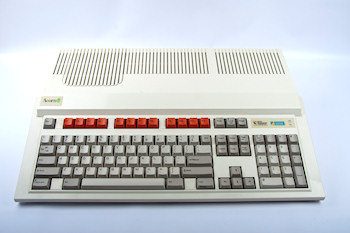
The last machine to bear the 'BBC Microcomputer' tag, the A3000 had 1MB of RAM and was powered by Acorn's own ARM2 processor running at 8MHz. The operating system was also Acorn's creation, RISC OS 2 (with the previous version having gone by the name of Arthur in the original Archimedes range). T... (read more)Acorn, 1989
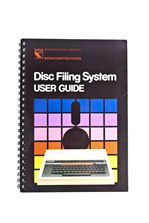
Disc Filing System User Guide for BBC Model B by Acorn Computers Limited. 93 pages. (read more)Acorn, 1983
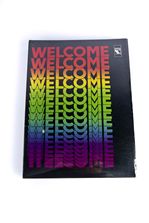
Welcome pack for BBC Microcomputer. This pack (still shrink-wrapped) contains an audio cassette with 16 programs to run on the BBC. (read more)Acorn, 1981